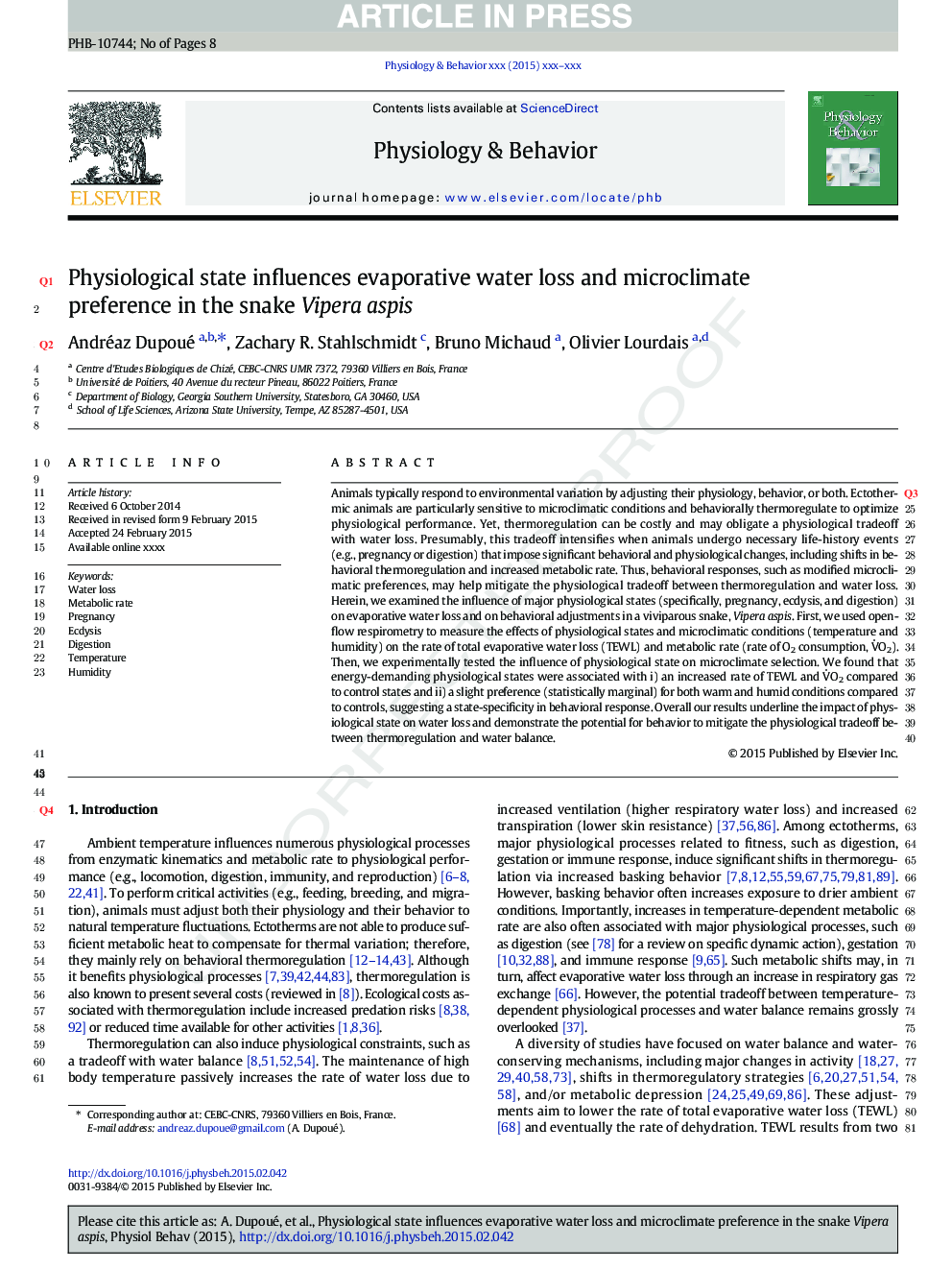| Article ID | Journal | Published Year | Pages | File Type |
|---|---|---|---|---|
| 5923638 | Physiology & Behavior | 2015 | 8 Pages |
Abstract
Animals typically respond to environmental variation by adjusting their physiology, behavior, or both. Ectothermic animals are particularly sensitive to microclimatic conditions and behaviorally thermoregulate to optimize physiological performance. Yet, thermoregulation can be costly and may obligate a physiological tradeoff with water loss. Presumably, this tradeoff intensifies when animals undergo necessary life-history events (e.g., pregnancy or digestion) that impose significant behavioral and physiological changes, including shifts in behavioral thermoregulation and increased metabolic rate. Thus, behavioral responses, such as modified microclimatic preferences, may help mitigate the physiological tradeoff between thermoregulation and water loss. Herein, we examined the influence of major physiological states (specifically, pregnancy, ecdysis, and digestion) on evaporative water loss and on behavioral adjustments in a viviparous snake, Vipera aspis. First, we used open-flow respirometry to measure the effects of physiological states and microclimatic conditions (temperature and humidity) on the rate of total evaporative water loss (TEWL) and metabolic rate (rate of O2 consumption, VËO2). Then, we experimentally tested the influence of physiological state on microclimate selection. We found that energy-demanding physiological states were associated with i) an increased rate of TEWL and VËO2 compared to control states and ii) a slight preference (statistically marginal) for both warm and humid conditions compared to controls, suggesting a state-specificity in behavioral response. Overall our results underline the impact of physiological state on water loss and demonstrate the potential for behavior to mitigate the physiological tradeoff between thermoregulation and water balance.
Related Topics
Life Sciences
Biochemistry, Genetics and Molecular Biology
Physiology
Authors
Andréaz Dupoué, Zachary R. Stahlschmidt, Bruno Michaud, Olivier Lourdais,
